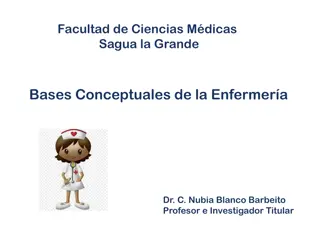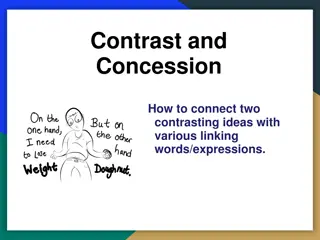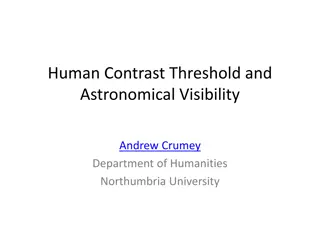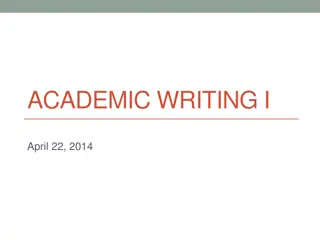
Compare & Contrast
Similarities and differences in the ideologies of Thomas Hobbes and John Locke, focusing on their views on the state of nature, social contract, and forms of government.
Download Presentation

Please find below an Image/Link to download the presentation.
The content on the website is provided AS IS for your information and personal use only. It may not be sold, licensed, or shared on other websites without obtaining consent from the author. If you encounter any issues during the download, it is possible that the publisher has removed the file from their server.
You are allowed to download the files provided on this website for personal or commercial use, subject to the condition that they are used lawfully. All files are the property of their respective owners.
The content on the website is provided AS IS for your information and personal use only. It may not be sold, licensed, or shared on other websites without obtaining consent from the author.
E N D
Presentation Transcript
Compare & Contrast By: RF
Thomas Hobbes Thomas Hobbes John Locke John Locke Differences Similarities Differences
Thomas Hobbes Thomas Hobbes John Locke John Locke Thomas Hobbes was an English philosopher best known for publishing Leviathan in 1651. In it, he defended the absolute power of kings and the monarchy. He believed that a state of nature is a state of war. Everyone is equal, but because there is no one governing body, people are selfish and self-serving causing everyone to live in fear. In order for man to survive they must have a government that can protect people from themselves. John Locke was an English philosopher who is most known for publishing The Two Treatises of Government. Locke believed that all people were born equal and entered into a social contract with a government for safety. However, if that contract was violated the people reserve the right to revolt. Locke believed that people are born with natural rights of life, liberty, and property. Locke believed that a state of nature meant people were moral and able to self-govern and favored a representative government with democratic values. Hobbes believed in social contract; an agreement among people to give up some of the rights they are born with in exchange for the security of a governing power that keeps law and order.
Thomas Hobbes Thomas Hobbes John Locke John Locke Wrote Two Treatises of Government Favors Democracy Believes people are moral People have a right to revolt Wrote Leviathan Favors Absolute Monarchy See s humankind as selfish
Thomas Hobbes Thomas Hobbes John Locke John Locke Thomas Hobbes was an English philosopher best known for publishing Leviathan in 1651. In it, he defended the absolute power of kings and the monarchy. He believed that a state of nature is a state of war. Everyone is equal, but because there is no one governing body, people are selfish and self-serving causing everyone to live in fear. In order for man to survive they must have a government that can protect people from themselves. John Locke was an English philosopher who is most known for publishing The Two Treatises of Government. Locke believed that all people were born equal and entered into a social contract with a government for safety. However, if that contract was violated the people reserve the right to revolt. Locke believed that people are born with natural rights of life, liberty, and property. Locke believed that a state of nature meant people were moral and able to self-govern and favored a representative government with democratic values. Hobbes believed in social contract; an agreement among people to give up some of the rights they are born with in exchange for the security of a governing power that keeps law and order.
Thomas Hobbes Thomas Hobbes John Locke John Locke Everyone is born with certain rights Theories of social contract & state of nature Everyone is equal
Thomas Hobbes Thomas Hobbes John Locke John Locke Everyone is born with certain rights Theories of social contract & state of nature Everyone is equal Wrote Two Treatises of Government Favors Democracy Believes people are moral People have a right to revolt Wrote Leviathan Favors Absolute Monarchy See s humankind as selfish
Thomas Hobbes Thomas Hobbes John Locke John Locke Thomas Hobbes was an English philosopher best known for publishing Leviathan in 1651. In it, he defended the absolute power of kings and the monarchy. He believed that a state of nature is a state of war. Everyone is equal, but because there is no one governing body, people are selfish and self-serving causing everyone to live in fear. In order for man to survive they must have a government that can protect people from themselves. John Locke was an English philosopher who is most known for publishing The Two Treatises of Government. Locke believed that all people were born equal and entered into a social contract with a government for safety. However, if that contract was violated the people reserve the right to revolt. Locke believed that people are born with natural rights of life, liberty, and property. Locke believed that a state of nature meant people were moral and able to self-govern and favored a representative government with democratic values. Hobbes believed in social contract; an agreement among people to give up some of the rights they are born with in exchange for the security of a governing power that keeps law and order.






















